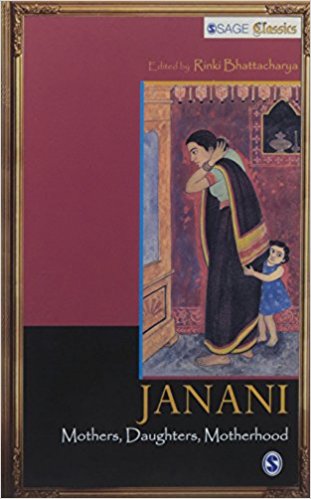One of the many treats of this book, an anthology of nineteen autobiographical essays on motherhood, is a marvellous evocation of food by some of the contributors. C.S. Lakshmi heads the list, with sections such as ‘Songs on the Terrace and Cakes with Green and Pink Icing’ and ‘Food as Communication, Food as Adventure’. Describing her mother Alamelu’s pampering of the sick, for example, Lakshmi describes ‘special’ items such as one with a ‘clear, top layer of rasam with pepper and cumin seed powder in it, just seasoned with mustard in pure ghee’, to which roasted pappad and rice would be added. Maitreyi Chatterji too speaks of a mother who was ‘not a household drudge’, but who made an array of delicious things to eat, including ‘mouth-watering salty snacks like singhara, kachuri, dalpuri, with a variety of stuffings’. At the other end of the spectrum, Urmila Pawar speaks of how, when news came that one of her brothers had died, she tried to make sure that her mother ate—only to face family hostility, since a woman who had lost a son should go un-nourished.
Under patriarchal ideology, nourishment and nurture, literal and metaphorical, are supposed to be provided unconditionally by mothers to their children, right from the womb. Mothers nurture and reproduce not just human beings, but entire systems of values, support, and ideologies—and yet, in our skewed epistemology, until recently, they were relegated to the inferior, derivative, domain of ‘re’-production, not production, which was seen to be done by the daddies.

